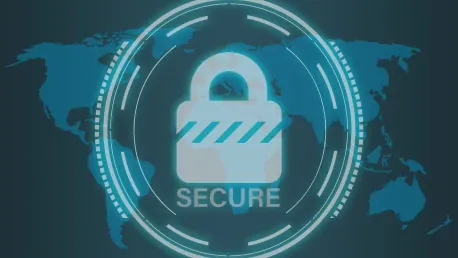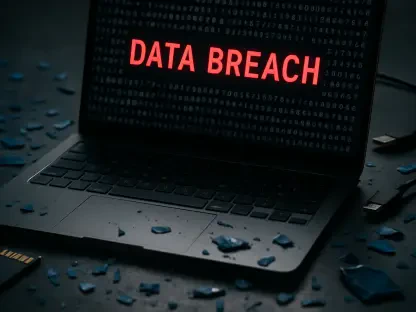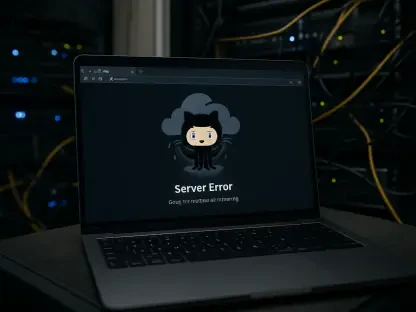In today’s digital age, small and medium-sized businesses (SMBs) are increasingly under threat from sophisticated cyber-attacks. With often limited resources and expertise, these businesses are particularly vulnerable, making robust and regularly updated cyber security standards essential. The dynamic nature of cyber threats necessitates a proactive approach to ensure that SMBs can defend themselves effectively. Given the perpetual evolution of cyber threats, standards that remain static simply do not offer the level of protection necessary in an ever-changing cyber landscape. This makes frequent updates not just recommended but crucial for maintaining robust cyber defenses.
The Cyber Security Certification Standard Australia (CSCAU) and its SMB1001 standard exemplify an approach that prioritizes continuous adaptation. Introduced initially in 2023 and updated for 2025, the SMB1001 aims to provide SMBs with a flexible and current framework to fortify their cyber defenses. Designed with the specific challenges faced by smaller enterprises in mind, this standard underlines the importance of regular revisions to stay ahead of emerging threats. Peter Maynard, co-founder and chief executive of CSCAU, likened these updates to a form of “vaccination,” a metaphor that underscores the preventive nature of maintaining current and effective cyber security measures.
The Dynamic Nature of Cyber Threats
Cyber threats evolve at a breakneck pace. What was considered a robust security measure yesterday might be obsolete today. Hackers are perpetually developing new methods to breach systems, which means that cyber security defenses must similarly evolve to remain effective. Stagnant standards can leave SMBs exposed to new vulnerabilities that were not previously considered. Regular updates to cyber security certifications and standards, such as the Cyber Security Certification Standard Australia (CSCAU) SMB1001, ensure that defenses are as up-to-date as possible. These updates act as a form of “vaccination,” protecting SMBs against the latest threats and maintaining a secure cyber landscape.
The rapid evolution of cyber threats makes annual updates indispensable for SMBs looking to maintain effective defenses. Traditional standards may give a false sense of security, as they often fail to account for the latest threat vectors that hackers use. The SMB1001:2025 standard takes a proactive stance, enabling businesses to stay ahead of cyber criminals. By requiring annual updates, CSCAU ensures that SMBs are not left vulnerable to newly discovered exploits or techniques that could jeopardize their operations. This proactive approach marks a significant departure from conventional practices, where updates may lag by several years, leaving a window of exposure that could prove disastrous for smaller enterprises.
Addressing Resource Limitations
SMBs often operate with tight budgets and limited IT resources, making it challenging to keep up with the latest in cyber security. Unlike larger enterprises, SMBs may not have the luxury of dedicated cyber security teams. Here, frequently updated standards play a crucial role by providing a streamlined and accessible framework for maintaining security. The SMB1001:2025 standard by CSCAU offers a tiered approach to certification—Bronze, Silver, Gold, Platinum, and Diamond. This system allows businesses at various stages of cyber security maturity to progressively enhance their security measures. By following a standard that updates annually, SMBs can implement new protections without needing to overhaul their entire security infrastructure.
The tiered structure of the SMB1001:2025 standard not only makes it accessible but also financially manageable for SMBs. The various certification levels serve as incremental steps toward achieving comprehensive cyber security, allowing businesses to improve their defenses in a phased manner. This is particularly beneficial for SMBs that may lack the financial clout to invest heavily in cyber security all at once. Additionally, the resource constraints often faced by SMBs make it difficult to stay updated with the latest cyber security practices. An annually updated standard removes this burden by providing a ready-made, up-to-date framework that can be easily adopted, ensuring that businesses remain well-protected against emerging threats.
Global Relevance and Alignment
Aligning cyber security standards with international benchmarks ensures that protection measures are universally applicable and up-to-date with global best practices. The SMB1001:2025 standard aligns with frameworks like the Australian Cyber Security Centre’s Essential Eight, UK Cyber Essentials, and the US Department of Defense’s Cybersecurity Maturity Model Certification. This alignment ensures comprehensive and robust protection against threats irrespective of geographic location. By adopting internationally recognized protocols, SMBs can instill confidence in global partners and clients, knowing that their cyber security measures are among the best. Such alignment not only facilitates better business operations but also enhances an SMB’s credibility on the global stage.
The international alignment of the SMB1001:2025 standard makes it a versatile and reliable benchmark for SMBs operating in diverse markets. By adhering to globally recognized standards, these businesses can better assure their partners and clients of their commitment to maintaining robust cyber security measures. This not only enhances the company’s reputation but also opens up opportunities for international collaboration and business expansion. Furthermore, the alignment with international standards like the Australian Cyber Security Centre’s Essential Eight and the US Department of Defense’s Cybersecurity Maturity Model Certification means that SMBs adopting the SMB1001:2025 standard will be in step with the highest levels of cyber security practices worldwide, thereby ensuring their defenses are both comprehensive and current.
Proactive Versus Reactive Security Measures
Traditional standards development can take years to update, leaving businesses vulnerable to new threats. National updates can take up to three years, and international standards can take nearly six years. During this lag, businesses may be exposed to emerging threats without adequate protections. In contrast, the streamlined annual update process of the CSCAU enables a responsive approach to new vulnerabilities. SMBs can proactively stay ahead of cyber criminals, rather than reacting to breaches after they occur. Continuous adaptation and improvement in the standards ensure that SMBs’ cyber defenses remain robust against even the most recent threats.
The proactive nature of frequent updates cannot be overstated. By regularly revising the cyber security standards, CSCAU ensures that SMBs are never left grappling with outdated defenses. The ability to respond promptly to emerging threats is a game-changer for smaller enterprises, which often lack the resources to rapidly adapt to new cyber challenges on their own. Unlike traditional standards that may leave a gap of several years between updates, CSCAU’s annual revision model provides a seamless way for SMBs to stay current. This not only fortifies them against immediate threats but also enhances their ability to anticipate and counter future challenges, thereby maintaining a resilient cyber security posture.
Collaborations and Partnerships
Effective cyber security often requires collaboration. The partnership between CSCAU and security vendor Huntress exemplifies the importance of collaborative efforts in enhancing cyber security standards. Together, they support the SMB1001 standard, offering a range of certifications that help businesses improve their security posture progressively. Such collaborations provide SMBs with additional resources and expertise, which may be otherwise inaccessible. By pooling resources and knowledge, these partnerships help SMBs stay informed and protected against complex cyber threats.
Collaborative efforts like the CSCAU-Huntress partnership bring a wealth of expertise to the table, providing SMBs with advanced tools and strategies to combat cyber threats effectively. These partnerships democratize access to cutting-edge cyber security solutions, leveling the playing field for smaller enterprises. By working together, organizations can develop more comprehensive and effective standards, tailored to the unique challenges faced by SMBs. This collaboration enables SMBs to benefit from the collective knowledge and resources of industry experts, thereby enhancing their ability to implement robust cyber defenses and mitigate risks effectively. Such collaborative frameworks set a valuable precedent for future initiatives aimed at fortifying SMB cyber security.
Real-World Impact and Case Studies
In today’s digital landscape, small and medium-sized businesses (SMBs) face increasing threats from advanced cyber-attacks. With limited resources and expertise, they are particularly vulnerable, making it crucial to have robust and regularly updated cyber security standards. The ever-changing nature of cyber threats demands a proactive approach to ensure SMBs can defend themselves effectively. Static standards simply do not provide adequate protection in this constantly evolving cyber environment, so frequent updates are essential to maintaining a strong defense.
The Cyber Security Certification Standard Australia (CSCAU) exemplifies this approach with its SMB1001 standard. Originally introduced in 2023 and updated for 2025, SMB1001 provides a flexible and current framework specifically designed to help SMBs strengthen their cyber defenses. This standard highlights the need for regular revisions to keep pace with emerging threats. Peter Maynard, co-founder and CEO of CSCAU, likens these updates to vaccinations, emphasizing the preventive nature of keeping cyber security measures current and effective. Regularly updating these standards is not merely recommended; it’s vital for robust cyber security.









